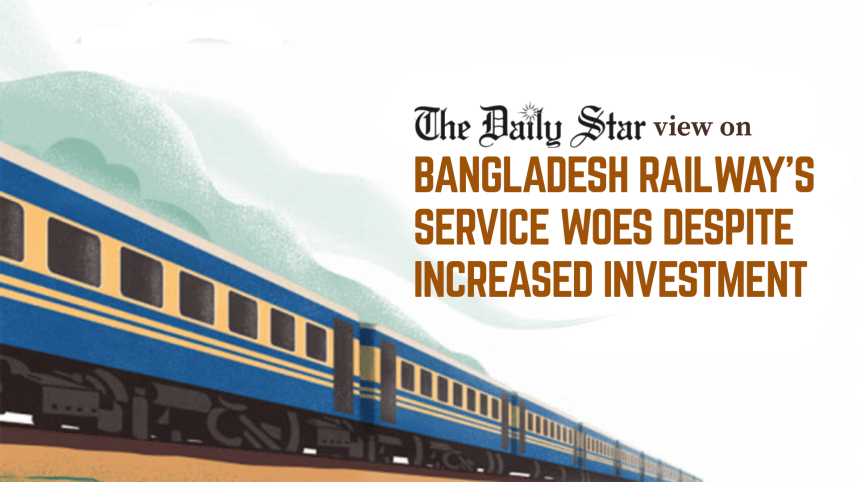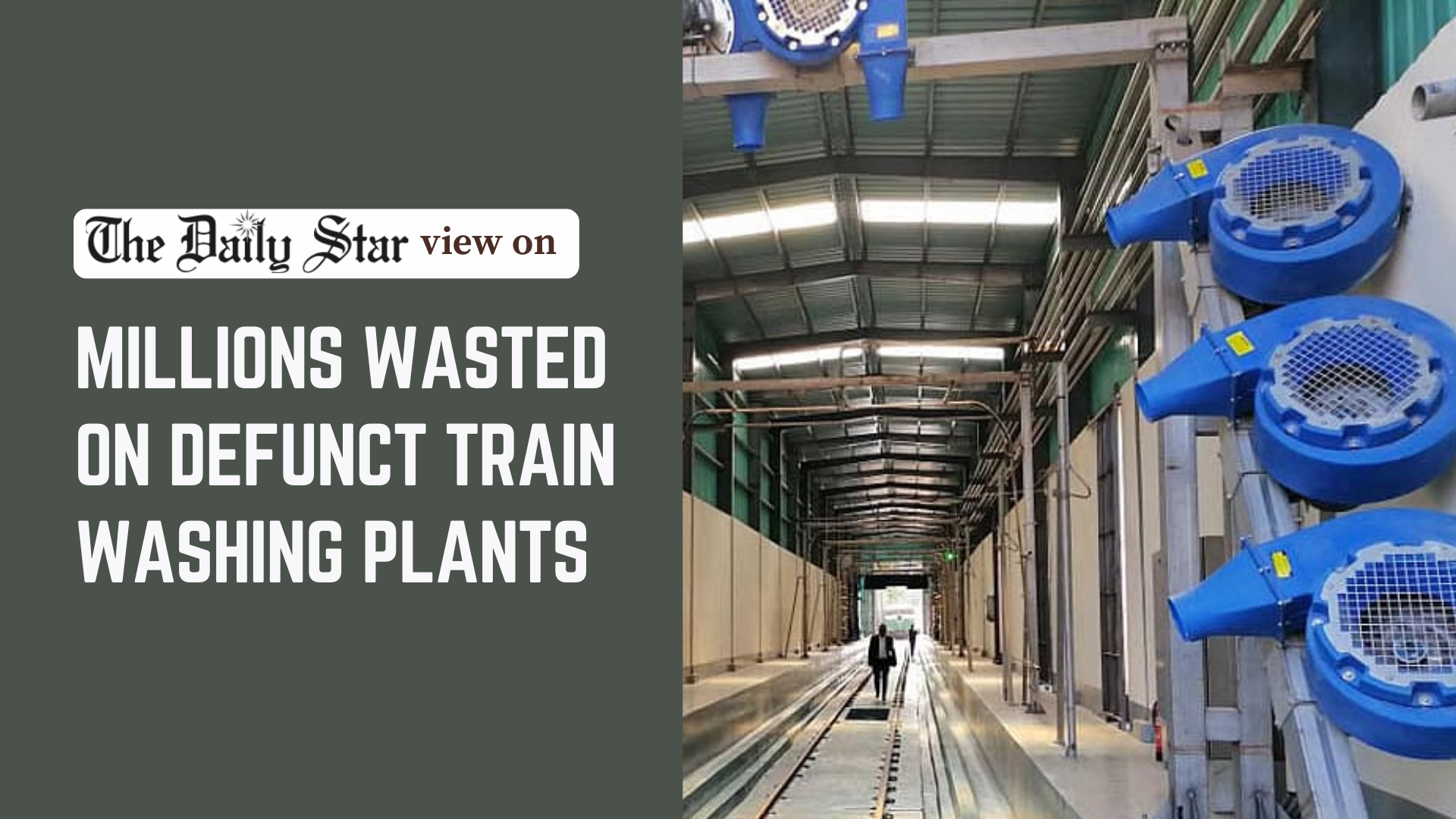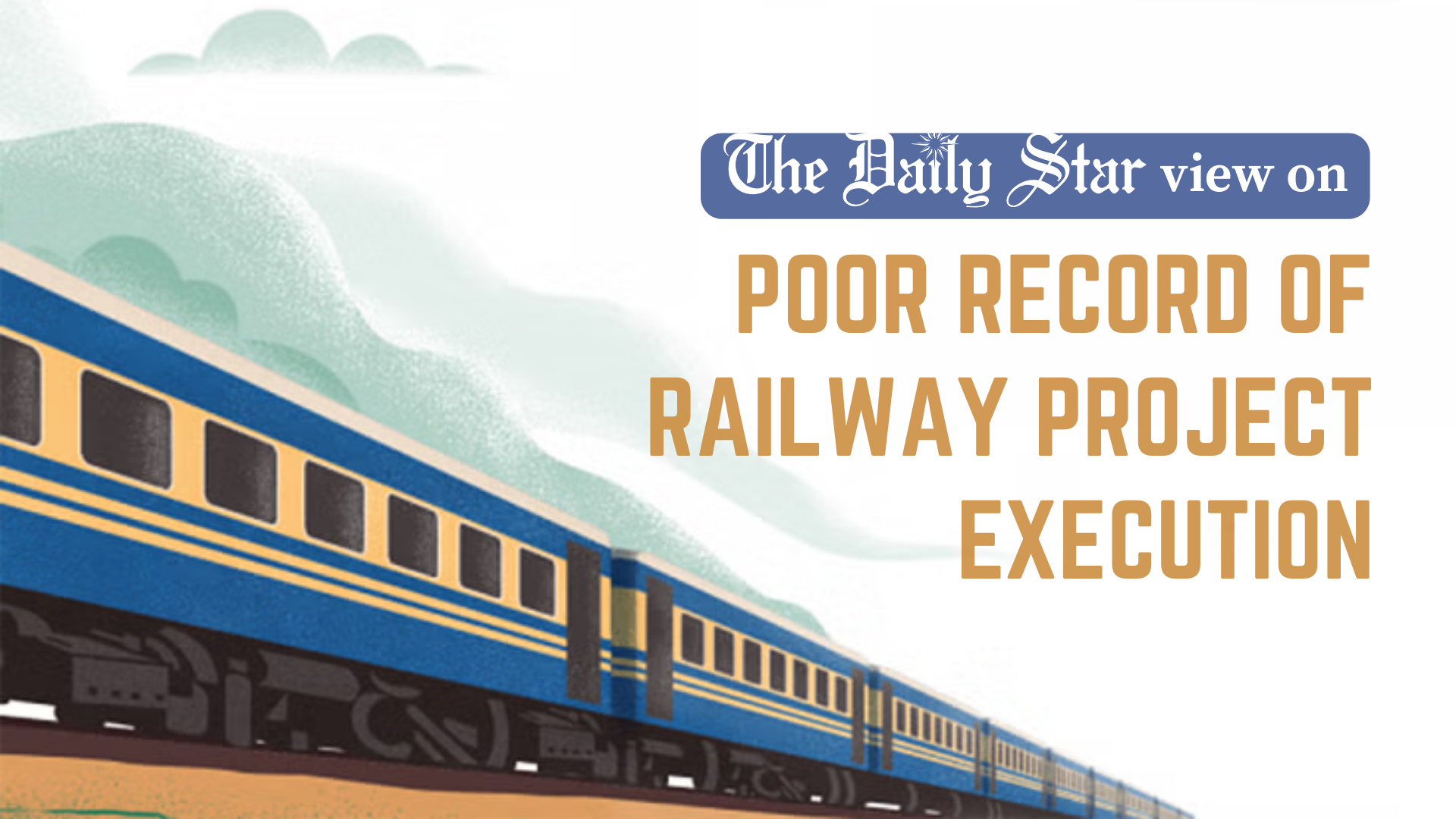Bangladesh Railway’s service woes persist

Bangladesh Railway (BR) continues to bleed financially and fail its passengers despite years of heavy investment. According to a recent Bonik Barta report, the government currently spends over Tk 4,000 crore annually on railway operations, with much of it directed towards maintenance, cleaning, and on-board services. Yet, passengers have seen little return from this investment, as complaints about dirty trains and stations, irregular schedules, ticket black marketeering, and technical failures persist. What's more baffling is that investment in the rail sector has increased significantly over the last 10 to 15 years, yet neither its services nor its profits have improved much.
In the fiscal year 2023-24, the Ministry of Railways was allocated a total of Tk 19,010.69 crore, including both operating and development expenditure. BR's income fell to Tk 1,845 crore in FY2024-2025—down 4.15 percent from the previous year—marking its first post-pandemic negative growth. While revenues rose slightly in the first quarter of FY2025-26, losses are projected to exceed Tk 1,574 crore for the fiscal year.
Meanwhile, even at the busiest station of the country in the capital's Kamalapur, there are still not enough toilets, waiting rooms, or functioning fans. Existing facilities are unhygienic, and many passengers have little choice but to wait on crowded platforms. Similar conditions exist at regional stations. Inside trains, passengers face broken seats, unclean toilets, and overcrowded compartments, often filled with "standing" and ticketless commuters beyond official capacity. Frequent derailments and incidents of coaches detaching mid-journey indicate a serious lapse in maintenance. Such conditions contradict the official claim that the purpose of increased operating expenditure is to improve passenger service.
Experts attribute the failures to inefficiency and lack of accountability. The railways ministry's adviser further admitted that the maintenance system "is not functioning properly" and that many of the workshops lack the required technical standards. Although the ministry claims to have reduced the operating ratio from 2.4 to 1.8, the improvement has not translated into visible benefits for passengers. Furthermore, cases of wasteful procurement, including non-operational track machines and defective train models, have been reported in recent years. These incidents point to a pattern of project design driven more by bureaucratic and procurement interests than by service needs.
To address these issues, BR must move beyond ad-hoc spending and prioritise structural reforms. Regular technical audits, transparent procurement, and independent monitoring of ongoing projects are essential. Resources should be directed towards maintenance, safety upgrades, and passenger facilities rather than ill-conceived projects. Without strict accountability and long-term planning, even large budget allocations will continue to yield little improvement in railway service or its financial performance.



 For all latest news, follow The Daily Star's Google News channel.
For all latest news, follow The Daily Star's Google News channel. 

Comments